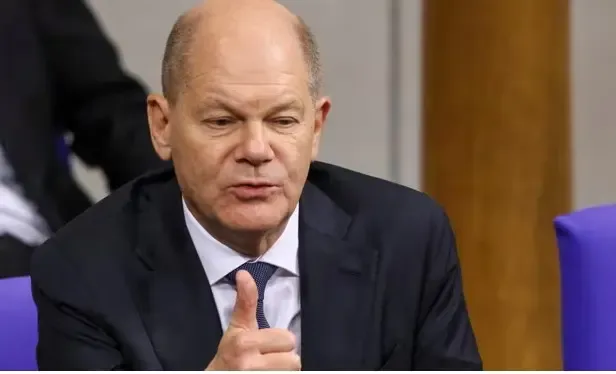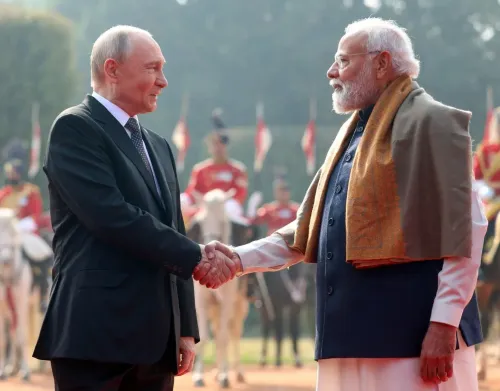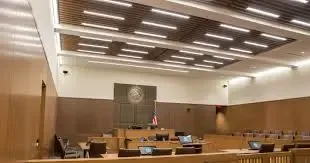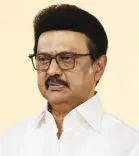Snap Elections Loom as Chancellor Olaf Scholz Faces Confidence Vote Fallout

Berlin, Dec 17 (NationPress) German Chancellor Olaf Scholz faced a setback in Parliament as he lost a crucial vote of confidence on Monday, leading to the announcement of early elections slated for February 23.
The beleaguered Chancellor, who saw his three-party coalition disintegrate in November, believed that initiating this vote was his best option to rejuvenate his party's declining political standing.
Now at the helm of a minority government, Scholz expressed that the snap elections would empower voters to shape the political future of the nation, deeming the upcoming polls a pivotal juncture for Germany.
By calling for the vote, Scholz aimed to deliberately lose, urging the Bundestag, or lower house of Parliament, to express its disapproval of his leadership, thereby initiating the formal process for new elections.
Scholz is set to request the President, Frank-Walter Steinmeier, to dissolve Parliament and officially announce elections, which must occur within 60 days, with February 23 marked on the calendar.
To achieve his objective, the Chancellor required 367 votes of no confidence on Monday, and ultimately, 394 MPs complied. The vote tally revealed 207 in favor and 116 abstentions.
Despite the loss, Scholz embraced the outcome, with the Bild tabloid labeling his strategy a “kamikaze” maneuver to dissolve Parliament and prompt elections. This seldom-used process has been utilized by German Chancellors five times since World War II to break political deadlocks.
In a passionate address, Scholz asserted, “My goal is to bring the federal election forward.”
“This is about having trust in our country and not putting our future at risk.”
He emphasized his commitment to restoring confidence in the nation's future, asserting, “Germany's best days lie ahead of us.”
Scholz's coalition, known as the “traffic light” coalition, unraveled in November after the pro-business Free Democrats (FDP) exited in protest over the Chancellor's dismissal of Finance Minister Christian Lindner due to significant disagreements regarding debt management.
This situation has left Germany with a minority government, consisting of Scholz's Social Democrats (SDP) and Greens, during a period marked by serious economic challenges and geopolitical uncertainties.
Scholz will continue to lead the government until a new administration is established.
During his half-hour address in Parliament, he defended his push for early elections, contending that governmental disunity could no longer be tolerated.
“Politics is not a game,” he stated, sharply criticizing the FDP's actions amid allegations of conspiring against the government.
“I deeply regret this damage,” Scholz commented.
Friedrich Merz, leader of the opposition conservative Christian Democratic Union (CDU) and a likely successor to Scholz, passionately remarked that the elections would provide an opportunity to reject the current government, describing it as “a day of relief.”
He noted that Germany must brace for a challenging period to tackle its extensive economic issues, urging citizens to work harder while promising financial incentives for those willing to delay retirement in what he termed a necessary “massive national exertion drive.”
The election campaign has unofficially commenced ahead of the vote, with politicians striving to win over voters frustrated by the ongoing cost of living crisis and stagnation related to Ukraine.
Recently, discussions have emerged regarding whether Syrians who sought refuge in Germany from the war should now be encouraged to return following the decline of the Assad regime. Both conservative opposition figures and the far-right Alternative for Germany (AfD) have called for a reevaluation of asylum policies concerning Syrians.
Alice Weidel, leader of the AfD, seized the opportunity to criticize the prior coalition for what she termed its “failed migration policy,” demanding the “immediate return” of Syrian refugees and labeling them as “Islamist terrorists.”
While serving in a caretaker capacity, Scholz faces pressure to gain support from the opposition for several urgent measures proposed by his government, essential for advancing Europe's largest economy.
This unfolds against the backdrop of the upcoming inauguration of the US President-elect, Donald Trump, and the uncertainties that the new administration may pose for Germany, including potential trade tariffs and a reassessment of military aid to Ukraine.
Legislators have acknowledged that measures aimed at addressing inflation, such as moving workers into higher tax brackets and subsidizing soaring energy costs that are currently impeding industrial growth, are less likely to be resolved promptly.
Due to Germany's past experiences with unstable and transient administrations, which significantly contributed to the rise of the Nazis nearly a century ago, stringent checks and balances are now implemented to ensure that new elections cannot be called without thorough consideration.
Before the vote, Steinmeier, whose role is predominantly ceremonial, remarked, “I hope we will follow tradition and have a stable government within a reasonable time frame.”
The CDU/CSU opposition, exuding confidence as it anticipates victory in the upcoming election under its investment banker leader Merz, has stated its readiness to support only the most critical measures.
Reluctant to appear as assisting the remnants of the Scholz administration, the Conservatives have suggested they might be willing to back proposals aimed at enhancing the protections of the constitutional court against the strategies of any future populist government. They have also indicated support for extending the duration of a highly successful subsidized transport pass, the future of which had seemed uncertain due to the government's collapse.
The governing Social Democrats have likewise urged the Conservatives to endorse other policies, given expectations that Germany may face a prolonged period of political uncertainty following the elections, with negotiations among potential new government partners likely to extend for weeks or even months.









